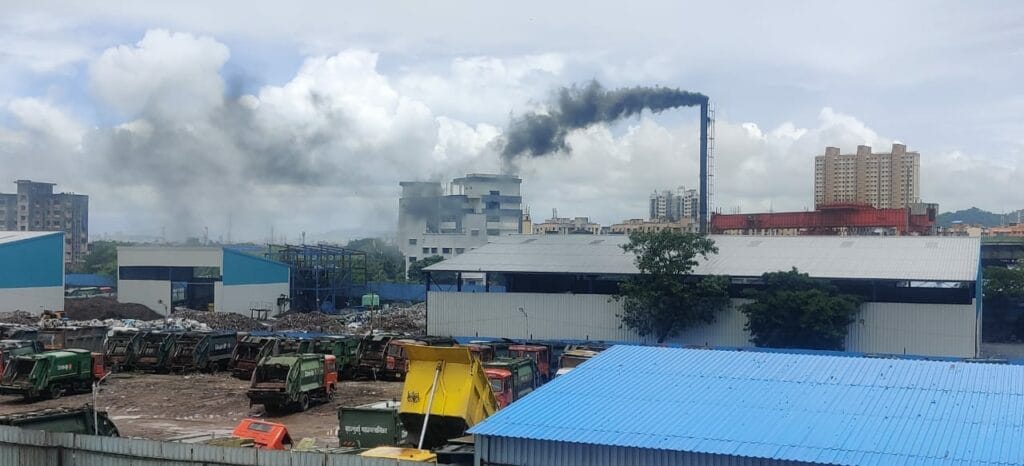In September 2023, our citizen-led organisation—Govandi New Sangam Welfare Society—had its first major win when Bombay High Court ordered the removal of a biomedical waste incinerator from Shivaji Nagar in Govandi. We had filed a public interest litigation (PIL) in October 2022 seeking immediate action, and the Bombay High Court has ordered that the plant be shifted to an industrial area within two years.
Govandi is part of the M-East ward, which is infamous for housing Mumbai’s largest dumping ground and its only biomedical waste incinerator. These factors have contributed to a high incidence of tuberculosis (TB), bronchitis, and other such diseases in the area.
I was born and raised in Govandi and have witnessed, first-hand, the consequences of municipal indifference to our neighbourhood. There are several non-profits working on civic issues here, but we feel the situation on the ground hasn’t changed much. Problems such as lack of sanitation, few open spaces, and poor educational facilities need to be brought before the authorities, and who better than representatives from the community to voice them?
Govandi citizens’ joint efforts
I initially worked alone, posting about potholed roads and poor sanitation on social media. My efforts were noticed and appreciated by the locals, who slowly joined me in the campaign. In 2021, we registered our organisation because we believed it would make our work as representatives of the community official.

We started campaigning actively against the biomedical waste incinerator, gathering health and socio-economic data to support our PIL. These included a 2015 report by Tata Institute of Social Studies, which revealed that the M-East ward had the lowest human development index in the city. We also filed a Right to Information application to obtain government health data on respiratory diseases and found that approximately 5,000 people contract TB in this ward every year.
Read more: Why are citizens opposing the city’s biomedical waste treatment plant?
Other challenges in Govandi
Winning the court order has given us fresh impetus. We are now campaigning against the decision of the Brihanmumbai Municipal Corporation (BMC) to establish a waste-to-energy plant in the neighbouring suburb of Deonar. We have made our community aware of the pollution caused by similar plants in Delhi and Okhla and the locals’ opposition to them. Disseminating information is one of our key objectives, and we do it via videos, news clippings, and social media posts.
We are also campaigning against the continued practice of human scavenging at the landfill; pressing the BMC for an additional Muslim cemetery; and working for the reclamation of open spaces. Our core team of 50–60 members represents hundreds of people across various neighbourhoods in the ward. Those communities have WhatsApp groups of their own where local problems are discussed. The core team meets once or twice a month to find ways to solve them.
Local politicians are afraid that we have political ambitions, and have tried to scare us off through anti-social elements. But we have held our ground. Some community members also tried to dissuade us, suggesting we focus on our own lives and careers. But now, witnessing the positive outcome of our interventions, even the naysayers are being won over.
This article was first published on India Development Review and has been republished here with permission. The original article can be read here.
| If you wish to connect with the author, you can reach him at govandicitizens@gmail.com to learn more about and support his work. |